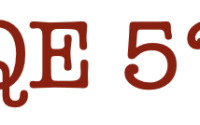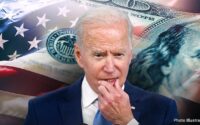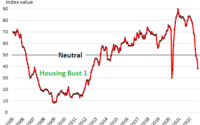If foreign exchange reserves aren’t really money, the world is in shock
“What is money? is a question economists have grappled with for centuries, but the Russian central bank’s reserve freeze has revived its relevance for the world’s biggest nations, particularly China. In a world where the accumulation of foreign assets is seen as risky, military and economic blocs are set to move further apart.
After Moscow attacked Ukraine last week, the United States and its allies closed the Russian central bank’s access to most of its $630 billion in foreign exchange reserves. Arming the monetary system against a Group of 20 country will have lasting repercussions.
The 1997 Asian financial crisis prompted developing countries to hoard more funds to protect their currencies from crashes, pushing official reserves from less than $2 trillion to a record $14.9 trillion in 2021, according to the International Monetary Fund. While central banks have recently sought to buy and repatriate gold, it only represents 13% of their assets. Foreign currencies are at 78%. The rest is made up of positions in the IMF and special drawing rights, or SDRs, a claim created by the IMF on hard currencies.
Many economists have long equated this money with savings in a piggy bank, which in turn correspond to investments made abroad in the real economy.
Recent events highlight the fallacy of this thinking: with the exception of gold, these assets are someone else’s responsibility – someone who can simply decide that they are worthless. Last year, the IMF suspended Taliban-controlled Afghanistan’s access to funds and SDRs. Sanctions against Iran have confirmed that holding offshore reserves does not prevent the US Treasury from acting. As New England law professor Christine Abely points out, the 2017 settlement with Singapore’s CSE TransTel shows that simply using the dollar abroad can violate sanctions on the premise that some of the clearing of payments ultimately occurs on US soil.
True, the West froze Russia’s stock of foreign currency, but did not block the influx of new dollars and euros. The country’s current account surplus is estimated at $20 billion a month due to oil and gas exports, which the United States and the European Union want to keep buying. While these balances go to the private sector, officials have mobilized them. Blocking big banks like Sberbank from using dollars and excluding others from the Swift messaging system further throws the economy into chaos, especially if foreign companies are afraid to buy Russian energy despite the explicit exclusion of the sanctions sector. But hard currency will likely continue to flow through energy-focused lenders like Gazprombank, and can theoretically be used to pay for imports and buy the rouble.
Yet the whole artifice of “money” as a universal store of value risks being eroded by the banning of key exports to Russia and boycotts of the kind that companies like Apple and Nike have announced this week. If currency balances became worthless computer inputs and did not guarantee the purchase of essential things, Moscow would be rational to stop accumulating them and store physical wealth in barrels of oil, rather than selling them to the West. At the very least, more of Russia’s money will likely move into gold and Chinese assets.
Indeed, the argument against China’s attempts to internationalize the renminbi is that, unlike the dollar, access to it is always at risk of being revoked by political considerations. It is now evident that to some extent this is true of all currencies.
Risk to King Dollar status is still limited due to most nations’ alignment with the West and Beijing’s capital controls. But the financial and economic ties between China and the sanctioned countries that are only allowed to accumulate reserves – and, above all, spend them – there will necessarily grow stronger. Even countries that are not sanctioned may want to diversify their geopolitical risk. It seems poised to continue the trend of de-globalization and entrench two distinct spheres of technological, monetary, and military power.
China itself has $3.3 trillion in foreign exchange reserves. Unlike Russia, it cannot usefully hold them in renminbi, a currency that it prints. Storage of raw materials is an alternative. The conundrum creates another incentive for Beijing to reduce its trade surplus by reorienting its economy towards domestic consumption, even if that has proven difficult.
What can investors do? For once, the old trope might not be ill-advised: buy gold. Many global central banks will surely do so.
Ever since Russia invaded Ukraine, the United States and allied countries have imposed heavy sanctions on Russia. The WSJ’s Shelby Holliday explains how they affect everyone from President Vladimir Putin to ordinary Russian citizens. Photo: Pavel Golovkin/Associated Press
Write to Jon Sindreu at [email protected]
Copyright ©2022 Dow Jones & Company, Inc. All rights reserved. 87990cbe856818d5eddac44c7b1cdeb8
[ad_2]
Source link


